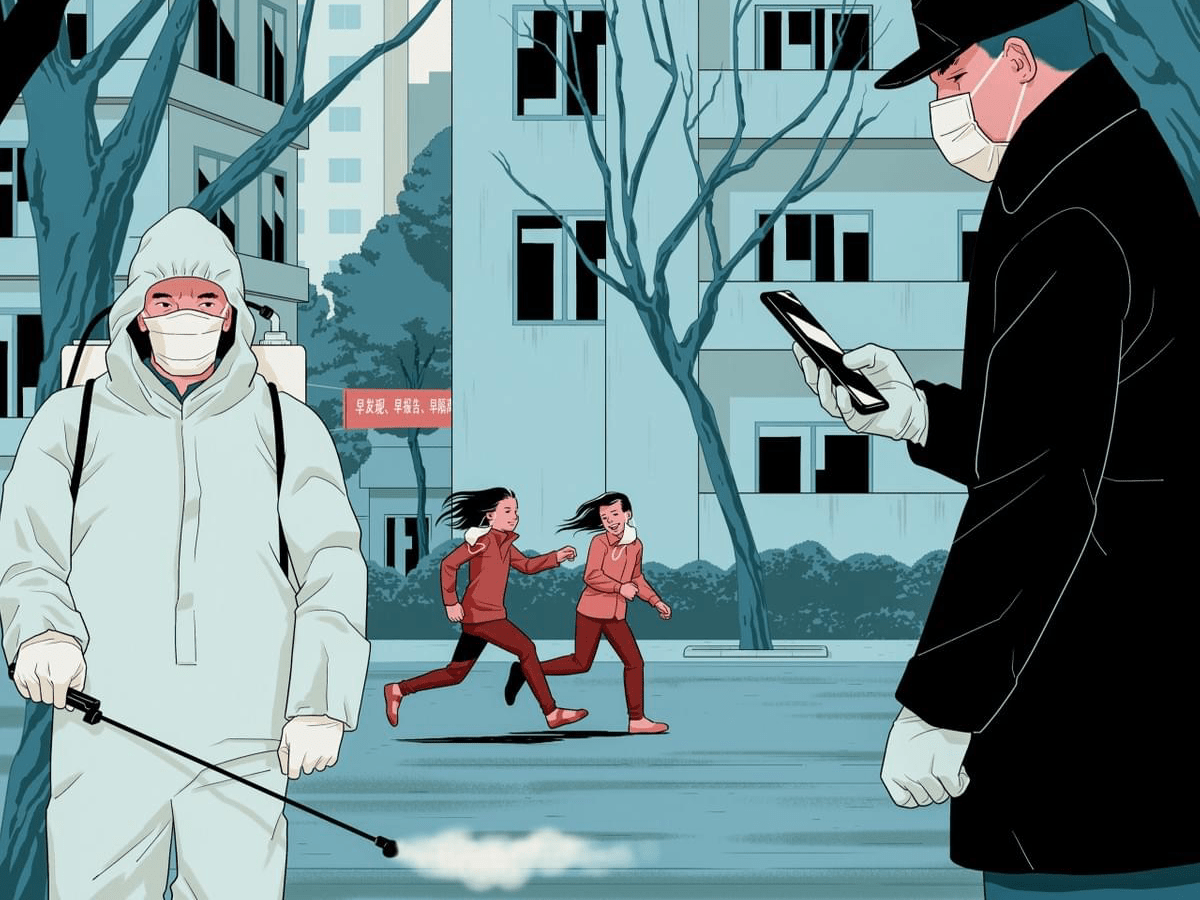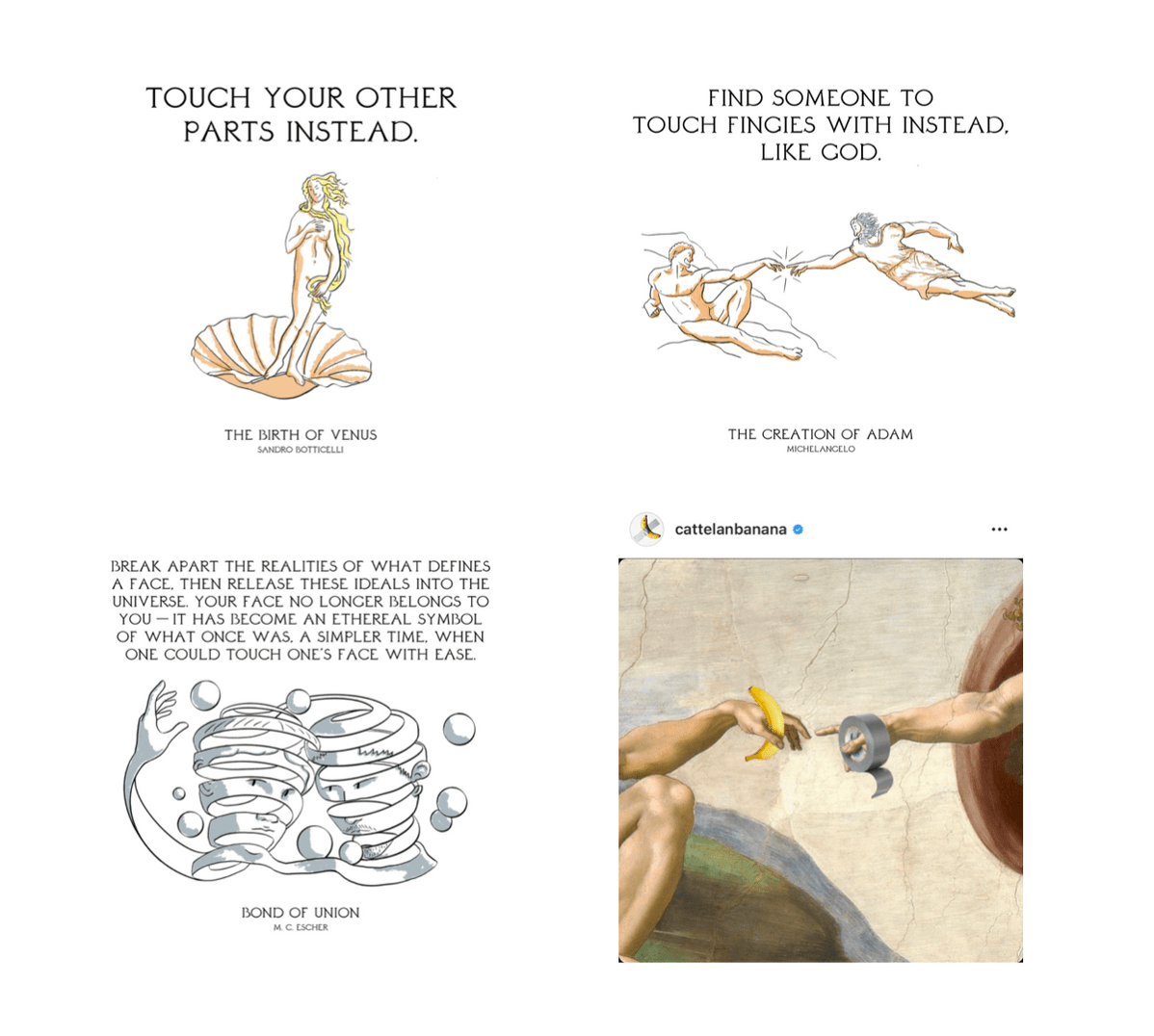Being in quarantine & experiencing some cold/flu-like symptoms (yes, scary) for still mysterious reasons forced me to take a much needed break from all the hustle and chaos around me. Yet, given that I had previously set myself some academic targets for the break a̵n̵d̵ ̵a̵m̵ ̵s̵u̵p̵p̵o̵s̵e̵d̵ ̵t̵o̵ ̵u̵p̵h̵o̵l̵d̵ ̵t̵h̵a̵t̵ ̵s̵a̵c̵r̵o̵s̵a̵n̵c̵t̵ ̵«̵a̵c̵a̵d̵e̵m̵i̵c̵ ̵r̵i̵g̵o̵u̵r̵»̵, I was pretty frustrated about my lack of productivity. My counsellor then gave me the most helpful piece of advice:
Lower your expectations. You are living through massive disruptions and are in a very unusual work environment. The pace and pattern of work ought to be difference under these circumstances, and you should accept and adapt to work differently — perhaps at a slower and healthier speed that allows you to breathe better.
So here's some of what I've been reading and watching over the past couple of days. :)
Books/articles
Related to my degree / anthropology:
The Beach Beneath the Street: The Everyday Life and Glorious Times of the Situationist International by Mckenzie Wark (2015).
Discourse and Truth: The Problematization of Parrhesia. (six lectures given by Michel Foucault at Berkeley, Oct-Nov. 1983)
Kamala Visweswaran, 2011. Conclusion: fragile facts on scholarship and activism. Cultural Dynamics 23(1): 73-79.
// Arendt suggests (albeit obliquely) that the May ‘68 language of outrage (‘Je vous accuse!’) founders because it takes as its final task the work of exposing the ‘lie’. She is saying that political institutions (or at least governments) always lie.
If we start from that point, then the nature of our intervention changes radically: we must move from simply exposing the lie, to finding other ways of telling the truth; of enacting the ideal of parrhesia, or of free and frank speech (Foucault, 2001). In separating intellectual inquiry from politics, one might see Arendt ironically deploying something like a truism (‘politics lies’) to get at truth.
Arendt, a theorist who came to intellectual maturity under the shadow of a totalitarian regime, fixes on a term that is an effect of moral discourse, ‘the lie’, but extracts it from its moral content, so that lying might be seen to be both normative to the social and foundational to the operation of power.
This is a form of method implicit in Foucault’s understanding of Nietzschean ‘geneology’, wherein a separation of the intellectual from the political does not imply a detachment of the two, enabling us to see how the tensions between these domains create new objects and analytics of inquiry (‘lying in politics’). //
Some commentary on the novel coronavirus...
[trigger warning: may include detailed description related to recent events!]
Somatosphere special series: Dispatches from the pandemic.
- Chistos Lynteris. 6 March 2020. COVID-19 Forum: Introduction.
- Vincanne Adams. 26 March 2020. Disasters and capitalism... and COVID-19.
Andrew Liu. 20 March 2020. "Chinese Virus," World Market. n+1.
// What the global spread of the novel coronavirus from Wuhan suggests is that the culprit here is not the unique circumstances of a particular place, but rather the now-extensive commercial connections that bring ever more of these kinds of places closer and closer together, into a larger and larger whole. In recounting the story of the novel coronavirus, it becomes increasingly clear that its movements have thus far mimicked the pathways of the 21st-century global market.
In interviews, customers have explained that they seek out rare wildlife delicacies not for their health benefits, but because they’re eager to impress important guests they’re entertaining—or because they’ve had a good day at the stock market. The pangolin trade owes more to the Chinese economic miracle than it does to some archaic superstitious culture.
The most famous local dish [in Wuhan] is a breakfast of hot noodles in a dry peanut sauce sprinkled with scallions and sold in street stalls; if pangolin sales in Wuhan have risen in recent years, therefore, this likely reflects less the particularities of the Wuhan people than the increased fortunes of the Chinese economy as a whole.
The many ties between Wuhan and the world today suggest a terrifying reality that should be clear to xenophobes and liberals alike. A viral outbreak in any one of these locations, it appears, could easily wind up touching the lives of hundreds of millions of others. //
- cf. Marius Meinhof. 21 March 2020. Othering the virus. Discover Society.
- // Thus, what failed in Europe is not liberal democracy but postcolonial arrogance. There was no lack of information, language ability, or time to learn what had happened in China. There was a lack of relating Chinese disasters to ‘us’, due to prevailing notions of orientalism and colonial temporality. Regrettably, Chinese state media have now started, too, to tell the story of the outbreak as a contest between ‘our’ and ‘their’ political systems rather than a natural disaster, and started to spread similar conspiracy theories as new orientalists did before. This may in turn make them underestimate the danger of a return of the virus in the coming year. //
- cf. Anna Tsing (2015). The Mushroom at the End of the World: On the Possibility of Life in Capitalist Ruins. -- Instead of the pangolin trade, Tsing describes the transnational foraging and trade of matsutake mushrooms. Similarly a critique and reconceptualisation of capitalism.
Peter Hessler. Life on lockdown in China. The New Yorker. March 30, 2020 Issue.

'Masks were required, and they made it easier for people to ignore one another. The costumes of the quarantine, along with other restrictions, turned people inward.' Illustration by Anuj Shrestha
Dance
Wayne McGregor rehearsing the final pas de deux from his Raven Girl with Beatriz Stix-Brunell and Ryoichi Hirano for the Royal Ballet on World Ballet Day 2015
- simply beautiful - mesmerising. I've been a fan of Beatriz since I first saw her rehearsing for Alice in Alice in the Wonderland via Royal Ballet LIVE back in 2012. I'm also constantly amazed by the sheer intelligence Wayne McGregor exudes through both words and movement. His beautiful articulation of all the complex thought processes going into his choreography is something I find really impressive & quite rare in the dance world.
Bolshoi Theatre: балета «Спящая красавица» (The Sleeping Beauty)
- HASHTAG THE EPITOME OF CLASSICAL BALLET 👌🏼
- performance recorded on 18 November 2011
- featuring Svetlana Zakharova as Princess Aurora and David Hallberg as Prince Desire + Nina Kaptsova as Princess Florine and Artem Ovcharenko as Blue Bird (!!)
Others
I have started two free online courses on Coursera (yes, bit ambitious).
1. ART of the MOOC: Activism and Social Movements by Duke University and Creative Time.
2. Our Earth's Future by American Museum of Natural History
Also on the exploration wishlist are some basic French/Russian language learning and some Russian political/art history (HAHA! will update if that ever happens ;))
Techniques for Not Touching Your Face, According to Works of Art. 18 March 2020.

Images 1-3 by Kathryn Kvas and Vignesh Seshadri, The New Yorker.
Image 4 by @cattelanbanana via Instagram, Galerie Perrotin.
Comment below to share what you've been up to - would love to hear what you're reading, watching, listening, making, or doing! #PhysicallyDistantButSociallyConnected #Solidarity
Subscribe to follow my blog :')
xxx